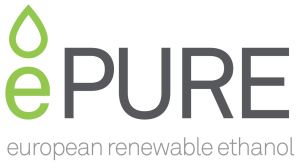We are delighted to invite you to an event which will be held on Wednesday, 22nd of May at 17.00.
This event will consist of an afternoon of discussion regarding a more coherent EU policy on biofuels for the next legislative term. The event will also be a timely opportunity to discuss whether a new momentum for biofuels would fast-track the transition to a low-carbon economy and support the agricultural sector, with our distinguished speakers:
- Luc Pelkmans, Technical Coordinator, IEA Bioenergy;
- Patrick Pagani, Deputy Secretary General, Copa-Cogeca;
- Joao Pacheco, Senior Fellow, Farm Europe;
- Valérie Corre, Director Regulatory Affairs Alcohol/Ethanol EU, Tereos and ePURE Board Member.
The debate will be moderated by Sarantis Michalopoulos, Senior Network Editor, Euractiv.
Additional speakers may be announced in due course.
This event is public and will be held online.
This event is organised in partnership with
About the debate
As the European elections draw near, two pivotal aspects of the EU economy have particularly sparked debate, namely the decarbonisation of the transport sector and the demands of European farmers, highlighting once again the question of how to ensure that the effort to combat climate change benefits all sectors of society. Within this context, according to some observers, the strategic importance of fulfilling the potential of biofuels has been overlooked not only as a sustainable fuel alternative, but also in relation to its associated benefits, such as supporting European farmers and boosting food security, lessening Europe’s dependence on imported oil, or reducing the EU’s need to import protein, enshrined in the EU protein strategy.
Other observers, including the European Court of Auditors, have highlighted some inconsistencies regarding EU policies towards biofuels, such as bioethanol, as well as a lack of long-term perspective. It is noteworthy that while the Renewable Energy Directive (RED III) and the G7 Hiroshima Declaration both recognised the role of biofuels in decarbonising the transport sector, other EU policy initiatives in the Fit for 55 package – such as the FuelEU Maritime Regulation, ReFuelEU Aviation Regulation and the revision of the Energy Taxation Directive (ETD) – have excluded or substantially marginalised the potential contribution of crop-based biofuels.
While the biofuel industry has fully recognised the pivotal importance of electricity as an important technology to drive the decarbonisation of the transport sector, it has also highlighted that it will take many years as well as major investments in advanced biofuels to fully replace oil and, for this reason, it has supported an EU approach to emissions reduction open to all technologies. In addition, on the question of “food vs. fuel”, independently audited statistics from ePURE – which accounts for about 85% of EU renewable ethanol production in the EU and the UK – reported that, in 2022, its members produced more food and feed co-products than they did ethanol.
In recent years, the EU’s climate and energy policies have highlighted the need to include biofuels as part of the solution to reducing the overreliance of transport on fossil fuel. As the EU embarks on a new political phase and as EU policies on climate will continue to evolve, a discussion on the role of biofuels and their part in fostering Europe’s decarbonisation and an inclusive energy transition would be beneficial to better understand the future dynamics of decarbonisation processes not only for the transport sector but also for the wider EU crop-based industry.

The event will commence online at 17.00 and will last around an hour and a half.
The audience will be able to ask questions during both the discussion and the Q&A session through sli.do #EUBiofuels
We look forward to e-hosting you at 17.00 on the 22nd of May.
This is a public event, hence the Chatham House Rule will not apply.



